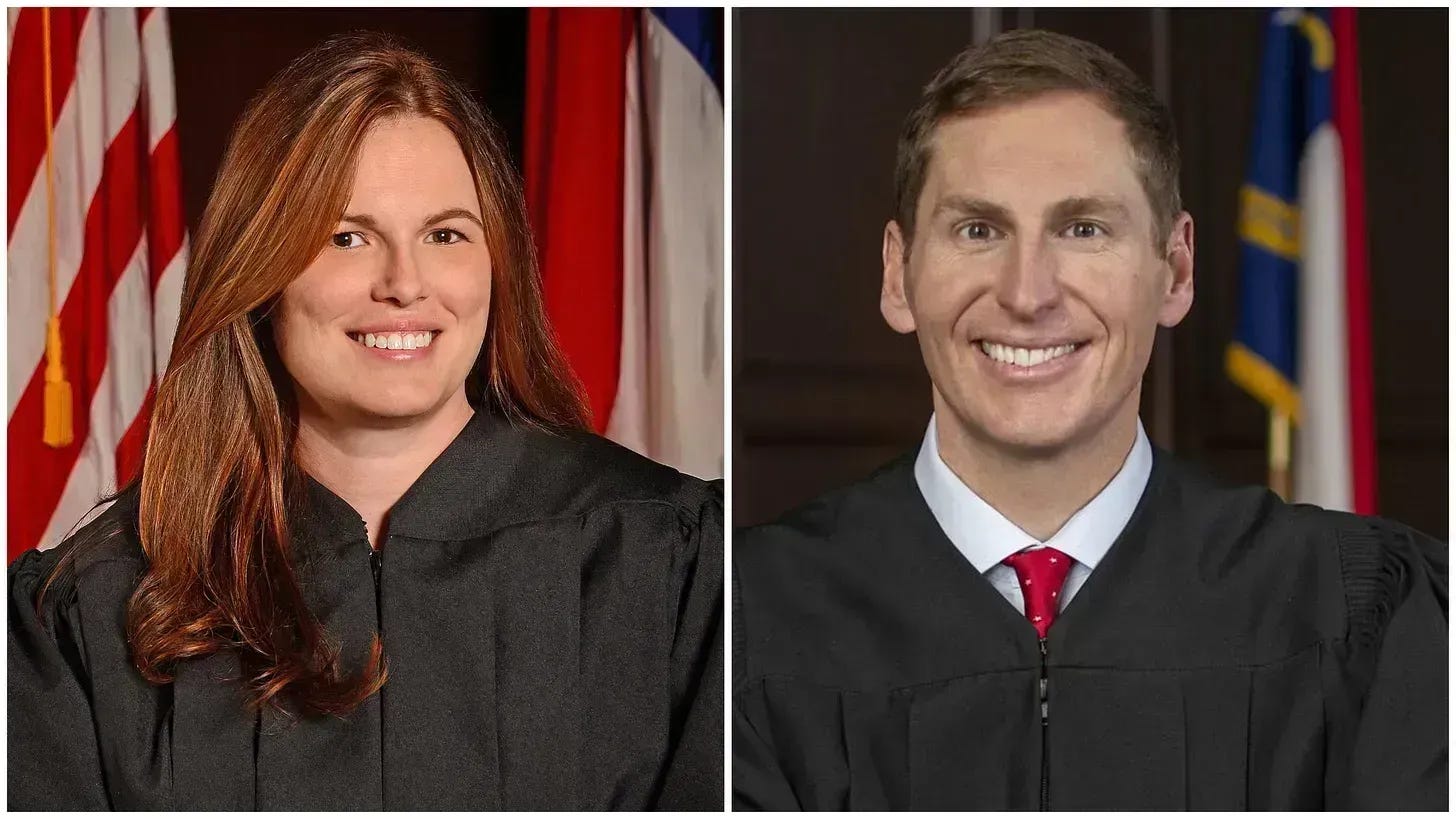NC Supreme Court issues mixed order, leaving outcome of high court race uncertain
The court said 1,409 voters should get 30 days to cure their ballots, while up to 267 voters should have their ballots immediately discarded. The fate of several thousand others remains unclear.

The North Carolina Supreme on Friday issued a mixed order that stands to leave the outcome of the race between Democratic Supreme Court Justice Allison Riggs and Republican Court of Appeals Judge Jefferson Griffin unresolved.
Under the court’s order, the vast majority of voters whose ballots Griffin sought to remove from the count will still have their votes count. But hundreds to thousands of other ballots remain at risk of being discarded.
The Supreme Court unanimously rejected Griffin’s protest of 60,273 voters who didn’t have a driver’s license number or last four digits of their Social Security number on a voter registration database managed by the State Board of Elections. It instructed the Court of Appeals to reverse its decision to put such voters at risk of having their ballots removed from the count.
But the high court did pave the way for Griffin to have his apparent 734-vote defeat overturned by ordering the removal of votes for 267 overseas citizens who have not resided in North Carolina but whose parents or legal guardians were eligible North Carolina voters before leaving the U.S.
Additionally, the court ordered anywhere from 1,409 to 5,509 military and overseas voters whose absentee ballots were not accompanied by a photocopy of a photo ID or ID Exception Form to have 30 days to cure their ballots. The Court of Appeals gave these voters 15 business days.
Riggs’ attorneys have appealed Friday’s state Supreme Court order.
(I’ve made a spreadsheet here listing all the voters whose ballots remain in question and which protest category they fall into)
Keep reading with a 7-day free trial
Subscribe to Anderson Alerts to keep reading this post and get 7 days of free access to the full post archives.



